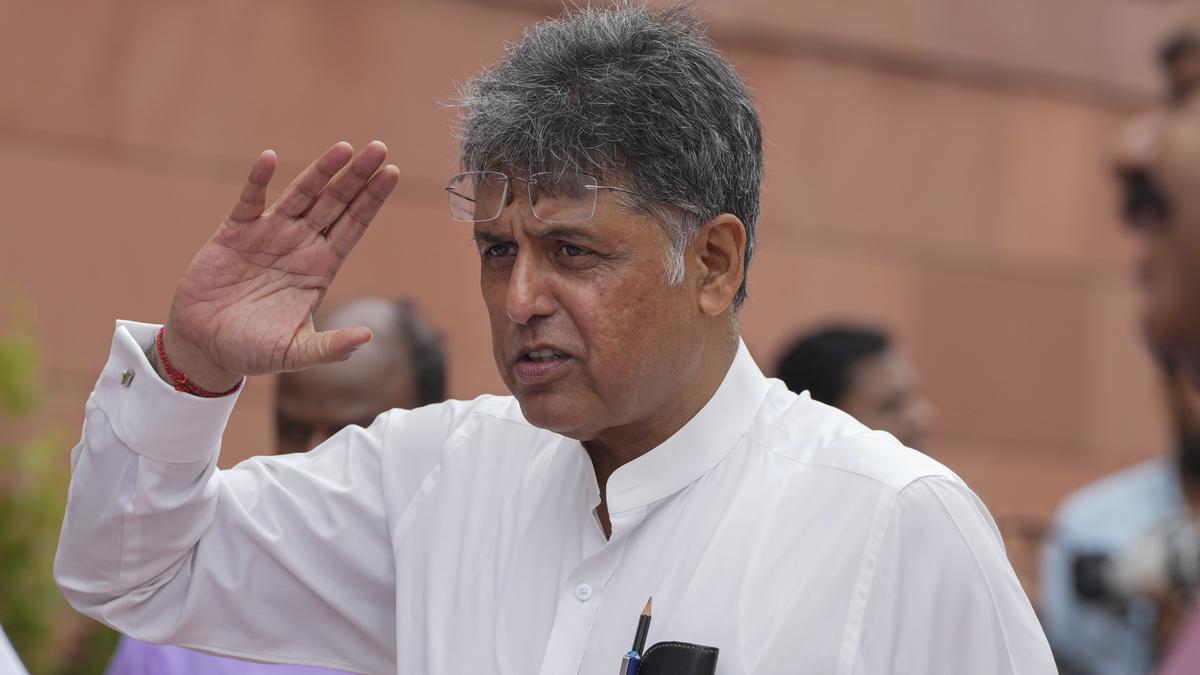ARTICLE AD BOX

The market sentiment improved after the announcement that Trump and Russian President Vladimir Putin will meet. (AI image)
US President Donald Trump’s move to impose 50% tariffs on India doesn’t seem to have worried the Indian stock markets too much. In fact, BSE Sensex and Nifty50 have shown resilience in the face of the Trump tariff threat.
Trump announced the 25% tariff on India on July 30 evening (India time). An additional 25% tariff for India’s Russian oil purchases was announced a few days after that.
Should these new tariffs be enacted, certain Indian products could face duties of up to 50%, effectively halting US imports from India, which reached approximately $87 billion in 2024.From the July 30 closing figure of 24855.05 to today's closing of 24,585.05, Nifty50 is down just 1.08%.The BSE Sensex surged 746 points to finish above 80,000 on Monday, driven by strong performance in oil, auto and banking sectors, supported by fresh foreign fund inflows. The NSE Nifty 50 increased by 221.75 points or 0.91 per cent to 24,585.05.
Trump’s tariff threat & oil market reaction
According to a column in Reuters by Clyde Russell, the oil market's subdued response to US warnings directed at India regarding its Russian oil purchases suggests a widespread belief that substantial actions are unlikely to materialise.
Also Read | ‘China issue more complicated…’: After tariff on India, will Donald Trump impose additional duties on China for Russia oil trade? What JD Vance saidThe implementation of additional Indian tariffs remains uncertain, but with minimal prospects for peace in Ukraine, India's most straightforward option to avoid these tariffs would be to cease Russian oil purchases, the Reuters column says.However, current crude oil prices do not reflect this potential outcome, it adds.Trump's current proposal differs from previous approaches. His strategy aims to exclude Russian oil from the market to compel Moscow into negotiations regarding Ukraine through financial constraints.Currently, Russian crude oil has two primary purchasers: India and China.China, being the largest crude oil importer globally, maintains a stronger position against Trump due to Western dependence on its refined critical minerals and other resources, making it difficult to pressure them into stopping Russian oil purchases.According to data from commodity analysts Kpler, India's Russian crude imports reached approximately 1.8 million barrels per day during the first half of the year, constituting about 37% of its total imports.Also Read | Donald Trump tariffs: How much will India’s fuel bill rise if it stops Russian crude oil imports & where would it buy from? ExplainedCurrently, the crude oil market anticipates the Trump/India/Russia situation will conclude as another "TACO", the acronym for "Trump Always Chickens Out", says Clyde Russell.Nevertheless, the outcome is likely to be more complex, with some Indian refiners reducing Russian imports, potential increased purchases by Chinese refiners, whilst the oil market continues to navigate geopolitical complexities.
Why is stock market not reacting too much?
According to Motilal Oswal Financial Services Ltd, the market sentiment improved after the announcement that Trump and Russian President Vladimir Putin will meet in Alaska to discuss the Russia–Ukraine conflict, aiming to ease geopolitical tensions.The mood was further lifted by strong domestic mutual fund inflows, which surged to ₹9,426 crore in July — the highest since December 2024 — along with value buying driven by attractive valuations and a favorable risk-reward outlook.Vinod Nair, Head of Research, Geojit Investments Limited says, “The market saw a relief rally post a 3-month low; a positive global cue and a gradual return of FIIs supported the sentiment. The PSU banks took the limelight amidst Q1 results from the banking major, while a broad-based momentum was visible across all sectors.” “Investors are positively assessing the upcoming US-Russia Summit this week, which may possibly give way to a de-escalation in geopolitical tensions.
While a near-term caution may still prevail, the more definite assessment of the US trade and growth impact is yet to be assessed fully,” he added.If the Russia-US-Ukraine situation eases, and India doesn't face 25% additional tariffs for its Russia oil purchases, the 25% remaining tariff number would still be lower than the 30% applicable on China, feel analysts. Also, there is optimism that India and the US will be able to seal an interim trade deal in the coming months.Also Read | Explainer: Donald Trump’s 50% tariffs - will India budge on Russia crude oil trade?



.png)
.png)
.png)
















 3 hours ago
5
3 hours ago
5









 English (US) ·
English (US) ·